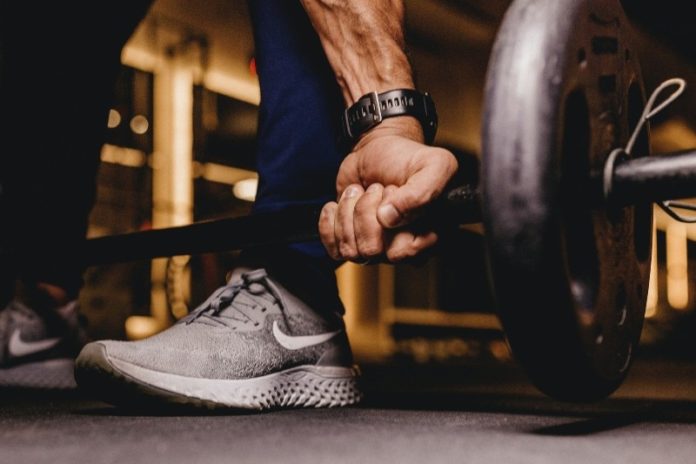
Updated: June 10, 2020
Tennessee’s Economic Recovery Group (ERG) issued guidance on how gyms and exercise facilities could reopen safely. Gyms were allowed to reopen in 89 of the state’s 95 counties beginning Friday, May 1. The counties excluded are those with locally-run health departments: Shelby, Madison, Davidson, Hamilton, Knox, and Sullivan.
The state updated the guidelines for exercise facilities on June 4. Here are some fo the guidelines, you can see the complete list here.
Business Process Adaptations
- Limit facility occupancy to the number of customers necessary to accommodate social distancing of at least 6 feet between persons at all times
- Mitigate exposure in the workplace by implementing social distancing guidelines and modify scheduling
- Staff to conduct regular (i.e., every 2 hours) disinfecting of high-touch surfaces, equipment and common areas of the facility using disinfectant cleaning supplies according to CDC guidelines
- Locker rooms, showers and lockers may be utilized, but sanitization of such areas should be increased (e.g., at least every two hours for high-touch surfaces like handles, sinks)
- Implement appropriate protocols for aquatic venues, such as swimming pools, hot tubs and saunas, in accordance with CDC Considerations for Public Pools and ERG Swimming Pool Guidelines, which at a minimum should include:
– Modify layouts of deck chairs and tables and limit capacity for the number of persons allowed in an aquatic venue at one time to ensure at least 6 feet of separation between families or small groups of acquaintances. Provide physical reminders for social distancing (e.g., lane lines in pool, non-slip tape on deck, or signs).
– Observe social gathering size limits.
– Implement cleaning and disinfecting practices for locker rooms and frequently touched surfaces at least daily and more frequently for shared objects such as handrails, deck chairs and tables, water fountains, and pool toys. Consider temporarily removing shared pool toys. Use cleaning projects that are appropriate for aquatic venues
– Pools should be staffed. Assign monitoring and cleaning responsibilities to a staff member other than a lifeguard on duty
– Encourage the use of face coverings when in close proximity with others; however, advise those wearing face coverings to not wear them in the water, as doing so could make it difficult to breathe
– Provide hygiene supplies (soap and paper towels or hand sanitizer)
Post signage regarding COVID-19 symptoms and request that persons refrain from use if feeling ill
– Encourage lap swimming only and limit lane-sharing. Limit group sizes of aquatic fitness classes, swim lessons, swim practices, or gatherings. - Close all basketball courts, racquetball courts, and other places where formal and informal group or team contact sports may occur. Refer to Noncontact Sports Guidelines.
- Only allow group fitness classes if classes can be completed in accordance with social distancing recommendations (including but not limited to: less than 50% capacity and with more than 6 feet of distance maintained between participants at all times; no shared equipment during the class; sufficiently adjusted class schedules to allow for deep cleaning between classes; martial arts and other contact activities should be completed without any person-to-person contact)
- Adjust equipment layout and close or restrict access to equipment to maintain at least six feet of distance between equipment
- Temporarily close water fountains, common areas, break rooms, check-in counters, where customers or employees may congregate. Encourage guests to provide their own water
- No self-service options (coffee bars, smoothie stations and other forms of communal food in facilities). For onsite food and beverage services, follow restaurant guidelines issued by Economic Recovery Group.
Consumer Protection
- Screen customers for illness upon entry to the gym:
– Best practice: Temperature checks for every customer. Persons with temperatures above 100.4 degrees Fahrenheit should not be permitted on premise
– Minimum: Question customers regarding COVID-19 symptoms
Have you been in close contact with a confirmed case of COVID-19?
Are you experiencing a cough, shortness of breath, or sore throat?
Have you had a fever in the last 48 hours? - Keep doors and windows open where possible to improve ventilation
- Post signs encouraging social distancing (visible to customers)
- Require that customers wash or sanitize their hands upon entering and leaving the facility
- Require customers to clean equipment they come in contact with using disinfecting wipes before and after each use
- Encourage customers to use only one piece of equipment at a time (i.e., no circuits or “super setting”) so that machines are cleaned after use
- Consider limiting workout length to avoid unnecessary exposure, decrease congestion, and allow for additional sanitization
- Recommend that persons more vulnerable or at-risk for COVID-19 as identified by the CDC—including those who are over the age of 65 or those who have chronic medical conditions—take extra precaution or refrain from use of the facility
Employee Protection
- Allow employees to work from home as much as possible
- Screen all employees reporting to work for COVID-19 symptoms
- Temperature screen employees
– Employees should take and log temperature before shifts
– Best practice: employers to take temperatures onsite with a no-touch thermometer each day upon arrival at work
– Minimum: temperatures can be taken before arriving. Normal temperature should not exceed 100.4 degrees Fahrenheit
- Staff should wear face coverings (not N-95 or medical masks, which should be reserved for healthcare workers) and other personal protection items as recommended by the CDC
- Provide training on personal protective equipment based on CDC guidelines
- Provide a sanitizing station such as a wash basin with soap and/or bottle of hand sanitizer
- Practice recommended social distancing to the greatest extent possible.
About The Economic Recovery Group (ERG)
The Economic Recovery Group (ERG), composed of 30 leaders from the public and private sector, is crafting guidance to assist businesses in a safe reopening. The industry representatives participating in the ERG collectively represent over 140,000 Tennessee businesses that employ over 2.5M Tennesseans. More information about ERG is available here.















